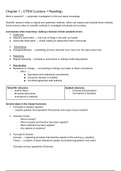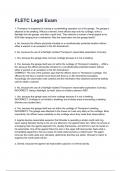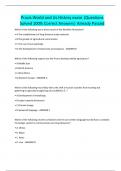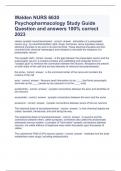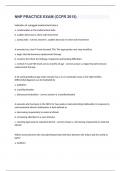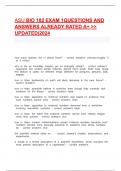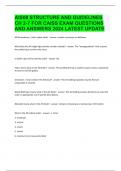Samenvatting
Understanding The Social World, Schutt: Summary of Ch. 1-10. Doing Research I - PPLE
- Instelling
- Universiteit Van Amsterdam (UvA)
This is a summary of all the mandatory chapters of the book Understanding the Social World by Schutt (Chapter 1-10). It includes some of the information presented in lectures on the book. It's a concise summary but doesn't miss any important information. It covers content such as qualitative/quanti...
[Meer zien]
